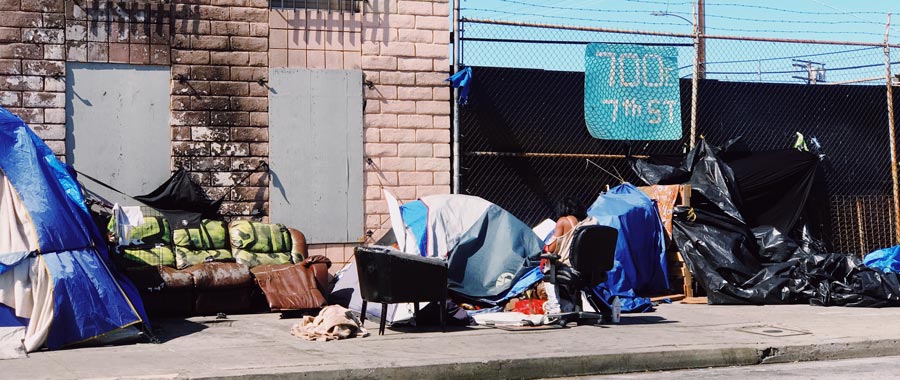The notion of “going to Skid Row on purpose” embodies a profound engagement with the principles of service and compassion central to the Baha’i teachings. This exploration delves into the rationale behind such deliberate acts of service, the philosophy underpinning the Baha’i faith, and the transformative implications of engaging directly with marginalized communities.
Historically, Baha’is advocate for the oneness of humanity and the eradication of prejudice. The call to serve those in need aligns seamlessly with these principles. Skid Row, known for its high population of homeless individuals, epitomizes the stark disparities that exist within contemporary society. The Baha’i commitment to social justice invites individuals to confront these disparities head-on, fostering a culture of empathy and action.
To understand the motivation for venturing into challenging environments like Skid Row, one must first examine the Baha’i perspective on service. Service is not merely an obligation; it is viewed as an opportunity for spiritual growth. Engaging with individuals experiencing homelessness manifests a unique intersection of compassion and humility. It catalyzes a deeper understanding of the human condition, promoting the realization that every person possesses innate dignity and value.
Baha’is believe in the essential unity of all people. This belief transcends socio-economic barriers, urging adherents to bridge gaps through direct interactions and communal efforts. The act of serving in a destitute area serves as a tangible expression of this unity. When one provides food, clothing, or companionship to those in need, it reinforces the interconnectedness of humanity. Each interaction becomes a testament to the broader principle that service is a divine obligation and a pathway to understanding and unity.
Moreover, the decision to help in locations like Skid Row can be viewed as a conscious rejection of societal norms that often prioritize comfort and status over compassion. In an age where individuals may be inclined to turn away from uncomfortable realities, choosing to serve in such environments signifies a courageous commitment to social transformation. It challenges the status quo and reflects a refusal to marginalize those who are often overlooked by society.
Another profound reason individuals may feel compelled to serve in places like Skid Row lies in the innate Baha’i belief in the efficacy of collective action. The intricate web of community dynamics highlights that while individual efforts are valuable, collective efforts possess the potential for greater impact. Mobilizing groups of Baha’is or like-minded individuals to engage in coordinated service projects can amplify the message of oneness and solidarity. This collective transcendence fosters a shared sense of purpose that can rejuvenate local communities.
Delving deeper, the very nature of urban poverty exposes a plethora of systemic issues—ranging from inadequate access to healthcare to educational disparities. Acknowledging these multifaceted layers of hardship necessitates a nuanced approach to service. Baha’is can engage in advocacy, raising awareness about these systemic concerns while simultaneously providing immediate assistance. This duality reinforces the notion that service transcends mere charity; it becomes a catalyst for societal change.
The emotional landscape of Skid Row also bears significant consideration. Individuals residing there often endure a myriad of psychological struggles, stemming from trauma, addiction, and social isolation. This poignant reality creates an opportunity for Baha’is to embody the principles of kindness and patience. Simple acts of listening or offering companionship can have transformative effects. By acknowledging individuals’ narratives, volunteers honor their humanity, fostering connections that may otherwise remain unseen.
Furthermore, interactions on Skid Row provide invaluable learning experiences for Baha’is. Each encounter is an opportunity to expand one’s understanding of resilience and the human spirit. Observing the diverse stories that emerge from such interactions emphasizes the importance of relinquishing preconceived notions. By recognizing the complexity of individual circumstances, Baha’is can cultivate deeper compassion and a more nuanced perspective on societal issues.
The symbolic nature of “going to Skid Row on purpose” transcends acts of kindness—it serves as a powerful reminder of the immersion required to genuinely understand and serve humanity. It emphasizes the value of stepping out of comfort zones and confronting the realities of societal inequities. This act of intentionality signifies a commitment to live the Baha’i principles in tangible ways, creating pathways for spiritual and community growth.
In conclusion, the Baha’i mission to serve in marginalized communities such as Skid Row reflects a complex interplay of spiritual principles, collective action, and personal transformation. Through deliberate engagement with those in need, Baha’is not only embody their faith but also foster a richer understanding of humanity. This endeavor illuminates that in confronting societal challenges, there exists a profound opportunity for personal and communal evolution. Ultimately, going to Skid Row on purpose represents a deliberate choice to embody the essence of service and the intrinsic interconnectedness of all people, invigorating the spirit of compassion that lies at the heart of the Baha’i teachings.
